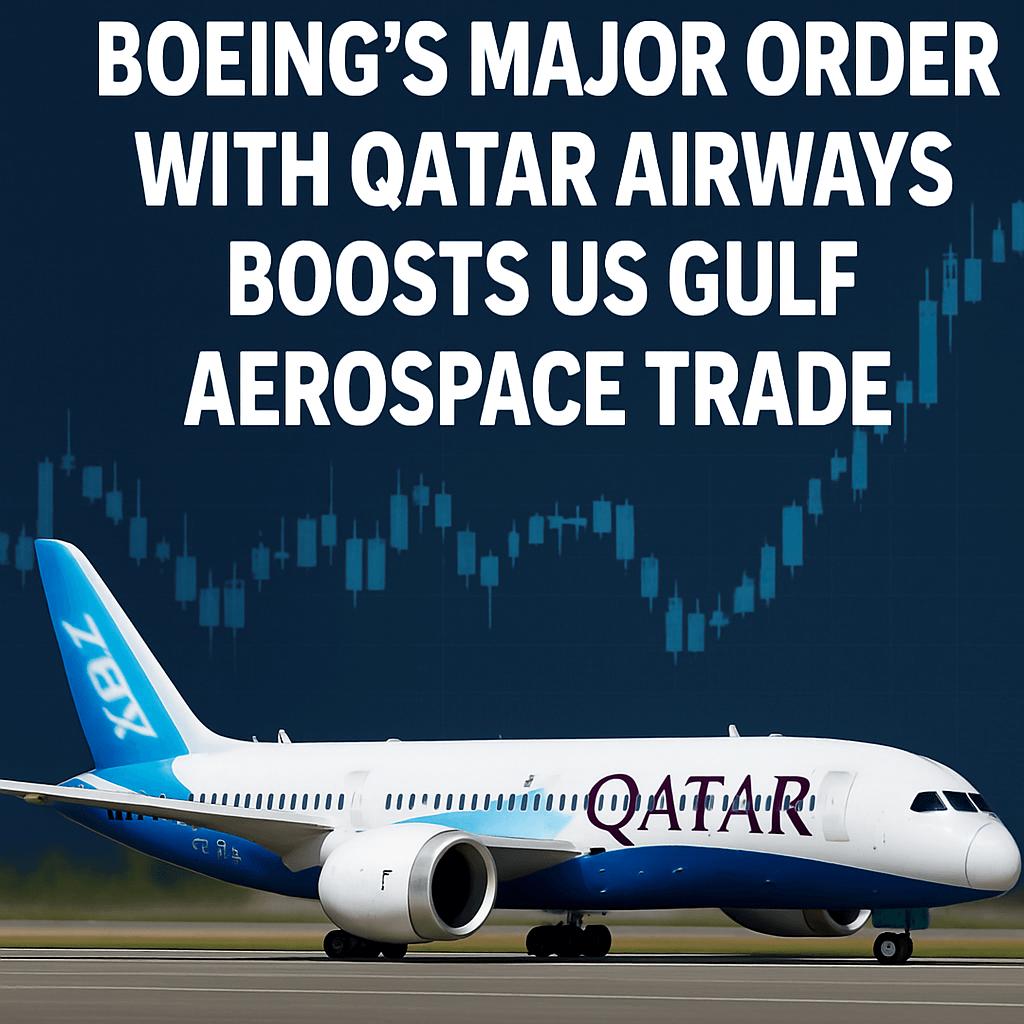Boeing’s Major Order with Qatar Airways Boosts US-Gulf Aerospace Trade

Overview of the Agreement
During US President Donald Trump’s recent Middle East tour, Boeing sealed a landmark contract with Qatar Airways worth $96 billion – the largest-ever widebody aircraft purchase in Boeing’s history. The deal encompasses 130 Boeing 787 Dreamliners and 30 777X jets, reflecting a strategic win for the US aerospace giant and a cornerstone in Washington’s broader push to deepen ties with Gulf Cooperation Council (GCC) partners.
Deal Structure and Technical Specifications
- 787 Dreamliner: Featuring an advanced composite fuselage, a 20% improvement in fuel efficiency over previous-generation models, and the GEnx-1B engines delivering 53,000–58,000 lbf thrust per engine.
- 777X: Equipped with GE9X engines rated at 105,000 lbf thrust, a 12-feet longer wingspan with folding wingtip technology, and a cabin pressurization optimized for reduced passenger fatigue.
The combined order is projected to support nearly 400,000 American jobs across Boeing’s supply chain, from high-tech manufacturing hubs in Washington State to engine assembly plants in South Carolina. With an estimated production rate increase to 14 Dreamliners per month by 2025, Boeing expects to ramp up global deliveries significantly.
Context in US–GCC Economic Relations
This agreement follows a $600 billion investment plan with Saudi Arabia and precedes similar discussions in the United Arab Emirates (UAE). By securing multiple multi-billion-dollar deals, the US administration aims to solidify a technology-driven alliance in energy, defense and advanced manufacturing across the Gulf region.
Geopolitical Implications
“These landmark deals will bolster American manufacturing and technological leadership, putting America on the path to a new Golden Age,” said the White House in a press release.
Trade experts note that diversifying away from China for major aircraft purchases not only mitigates geopolitical risk but also aligns with US export-control strategies and recent AI chip restraint policies targeted at sensitive dual-use technologies.
Impact on Boeing’s Supply Chain and Production Capacity
Analysts at Aerospace Insight highlight several operational challenges:
- Material Sourcing: Ensuring a steady supply of carbon-fiber composites amid global logistics constraints.
- Engine Assembly Lines: Scaling up GE9X and GEnx production without compromising quality control.
- Quality Assurance: Maintaining rigorous FAA and EASA certification processes after the 737 MAX groundings.
Recent investments in automated drilling and robotic composite layup at Boeing’s Everett factory are designed to boost throughput by 15% while preserving stringent structural tolerances.
Financial and Market Analysis
Following the announcement, Boeing’s share price climbed 2% to a 52-week high. Goldman Sachs upgraded Boeing to “Buy,” citing improved cash flow visibility from long-term backlog growth. Conversely, credit-rating agency S&P has maintained Boeing’s corporate rating at A–, signaling confidence in the company’s debt-reduction roadmap.
Future Outlook and Expert Commentary
Engr. Badr Mohammed Al-Meer, Qatar Airways CEO, commented: “We look forward to smart growth together—building the backbone of the world’s most efficient long-haul network.” Aviation consultant Dr. Maya Liu adds: “This deal not only reflects Qatar’s recovery strategy post-pandemic but also underscores a shift toward next-generation widebodies that prioritize fuel economy and passenger comfort.”
Additional Sections for Deeper Analysis
AI and Automation in Aerospace Manufacturing
Parallel to the aircraft order, the US finalized an $80 billion AI investment plan with Saudi Arabia. Technologies such as machine-vision inspection systems and predictive maintenance algorithms are increasingly embedded in production to reduce downtime and enhance safety margins.
Regulatory Landscape and Export Controls
While the Trump administration rescinded certain AI diffusion rules, the Department of Justice is rewriting export curbs focusing on high-end GPUs and critical materials. In response, China has suspended 90-day export restrictions on 28 US companies, facilitating smoother trade for semiconductors and rare-earth elements.
Comparative Analysis: Boeing vs. Airbus in the Gulf
Airbus remains a strong competitor in narrowbody markets, but the Gulf carriers’ preference for fuel-efficient, large-capacity widebodies gives Boeing an edge in premium long-haul segments. Market-share data from IATA suggests Boeing could claim up to 60% of new widebody orders in the Middle East over the next decade.
Read on YieldRadar.info for further coverage.